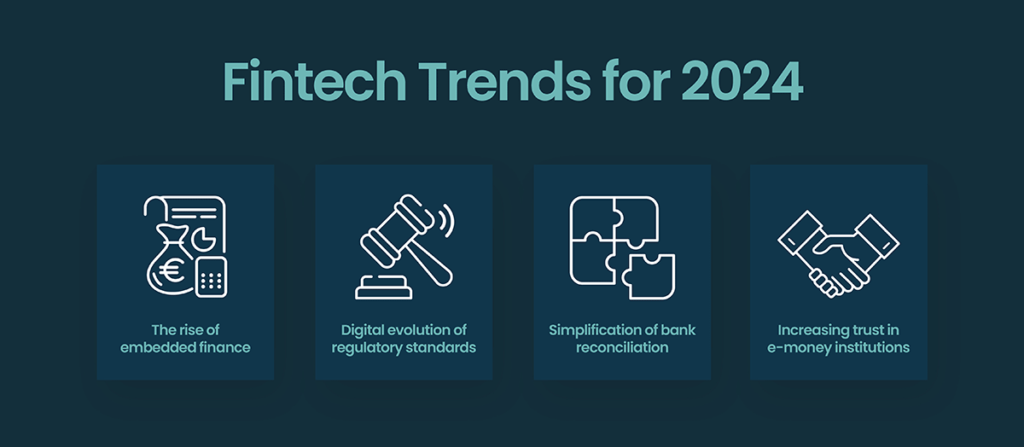In comparison to other digital markets, fintech is one of the most well-known, understood, and promising. Money is also used on a daily basis and considered as a common asset, with people taking out loans, paying utility bills, purchasing bitcoin, and spending it in ways. The payment industry has matured to the point that it can take many different ways.
Either consumers or enterprises have markedly shifted in the digitised pocket, encouraging digital transactions, mobile devices, wearable techs, or whatnot. This shift has completely redefined payment methods while making them entirely digital. Users are getting along with digital wallets, and digital money’s efficiency, developing economies into a phase of limitless possibilities for online purchases. With time, there is a lot of evolution in technology; you can also explore the upcoming trends in fintech by following fintech app development company and their services for 2024 in this blog.
Fintech market Overview:
As of today’s date, fintech app development company is always changing ways to provide better digital payment experiences. According to industry research, projects in the market would increase from $127.65 billion in 2022 to $332.3 billion in 2027 globally. With the rising usage of online payments, the market is seeing a surge of embedded financial services.
Conclusively, fintech guidance has become increasingly vital as businesses attempt to navigate new technology and markets in order to remain competitive. In the changing climate of fintech, 2024 is expected to feature several important themes that will reshape the industry.
1. Embedded Finance
The financial integration in fintech app development services onto non-financial platforms is expected to advance. In 2024, embedded finance will be defined by e-commerce sites that entertain by providing loans, social networking that include payment functionalities such as PayPal, Stripe, and Square that integrate into everyday transactions.
However, there are integration issues with Software-as-a-Service platforms and markets. While embedded finance promises to help small and medium-sized enterprises with financial management, problems in the compliance, security, and regulatory environments remain. Strategic alliances appear to be the ideal solution, given the complexities and expense of building in-house financial services. Looking ahead, generative AI and data analytics are expected to drive advances in embedded finance, resulting in personalised financial products and specialised fintech app development services tailored to certain industries.
2. Central Bank Digital Currencies (CBDCs) Momentum
Many different countries are likely to conduct research and launch CBDCs which will change digital currencies. These government digital currencies are intended to increase financial inclusion, reduce transaction costs, and potentially evolve cross-border payments. CBDCs are becoming increasingly popular, with countries such as China launching large-scale trials of their digital yuan to lessen reliance on existing super-apps such as WeChat and Alipay. Several additional countries, including Sweden, South Korea, the Bahamas, and the United States, are investigating CBDCs. International bodies such as the IMF and the BIS are conducting extensive research into the impact of CBDCs on financial stability and the global monetary system. Private banking and technology enterprises are exploring opportunities in the future CBDC ecosystem, such as providing digital wallets.
3. Decentralized Finance (DeFi) Maturity
DeFi’s growth is increased by complex and secure financial applications. Moreover, you can expect enhancements in lending, borrowing, and digital farming, with an emphasis on scalability and cutomers requirements. In 2024, DeFi will enter a revolutionary phase of growing by adding lending and borrowing protocols, exchanges will be given new functionalities, and insurance platforms may expand the coverage and provide more security as well as insurance options.
4. Banking-as-a-Service (BaaS) Challenges
Collaborations in BaaS, which initially include banks and fintech app development companies that use APIs, present obstacles. Banks struggle with digitalization and API partnerships owing to a lack of experience, thus they seek assistance from non-financial technology businesses. As API usage increases, fintech app development companies that specialize in APIs acquire customers, while others seek to become significant components of banking services.
5. Open Banking Expansion
Legislative measures are driving the global expansion of open banking, which benefits both new and incumbent institutions. However, there are integration challenges with legacy systems. Widespread smartphone use and enterprise technology advancements drive the expansion of open banking, enabling digital-first banks to leverage networked IT infrastructures.
6. Rise of Super Apps
Customers are increasingly using super applications, which serve several jobs on a single platform. They offer one-stop access to a variety of services, and their ease is predicted to fuel exponential growth. Platforms such as WeChat, Grab, and Alipay have transformed the digital landscape by combining many services. Their ongoing growth into finance markets is expected to reach $887.3 billion by 2033.
7. Virtual Banking Assistant:
Let the powerful AI virtual banking assistant takes over the banking world. System has introduced them to make things work easily and in a better way for service providers as well as to end-users. These smart assistants, whether voice-activated or text-based, respond swiftly to your most common questions, saving you time on customer support calls. Imagine send a small amount such as $50 to your mate or family member just by asking—no arduous processes required! They will help your you walk through the application by making everything simple and easier, including introduction to new features so you never feel confused. Furthermore, with timely notifications of questionable behavior, these virtual companions safeguard your money by keeping you one step ahead of possible thieves. Take a more practical and economical approach to banking!
Conclusion:
As we are approaching towards the revolutionized and digitalized world of the financial market of 2024, the FinTech industry is all set to break out with innovative trends that guarantees to enhance the way of handling finances. The future holds numerous possibilities, from the advent of embedded finance and central bank digital currencies to the maturation of decentralized finance and the emergence of super apps. AI-powered virtual banking assistants will improve user experiences by making transactions more convenient and secure. Embrace these new advancements and stay ahead of the curve in a rapidly evolving digital economy—your financial future has never looked better!


